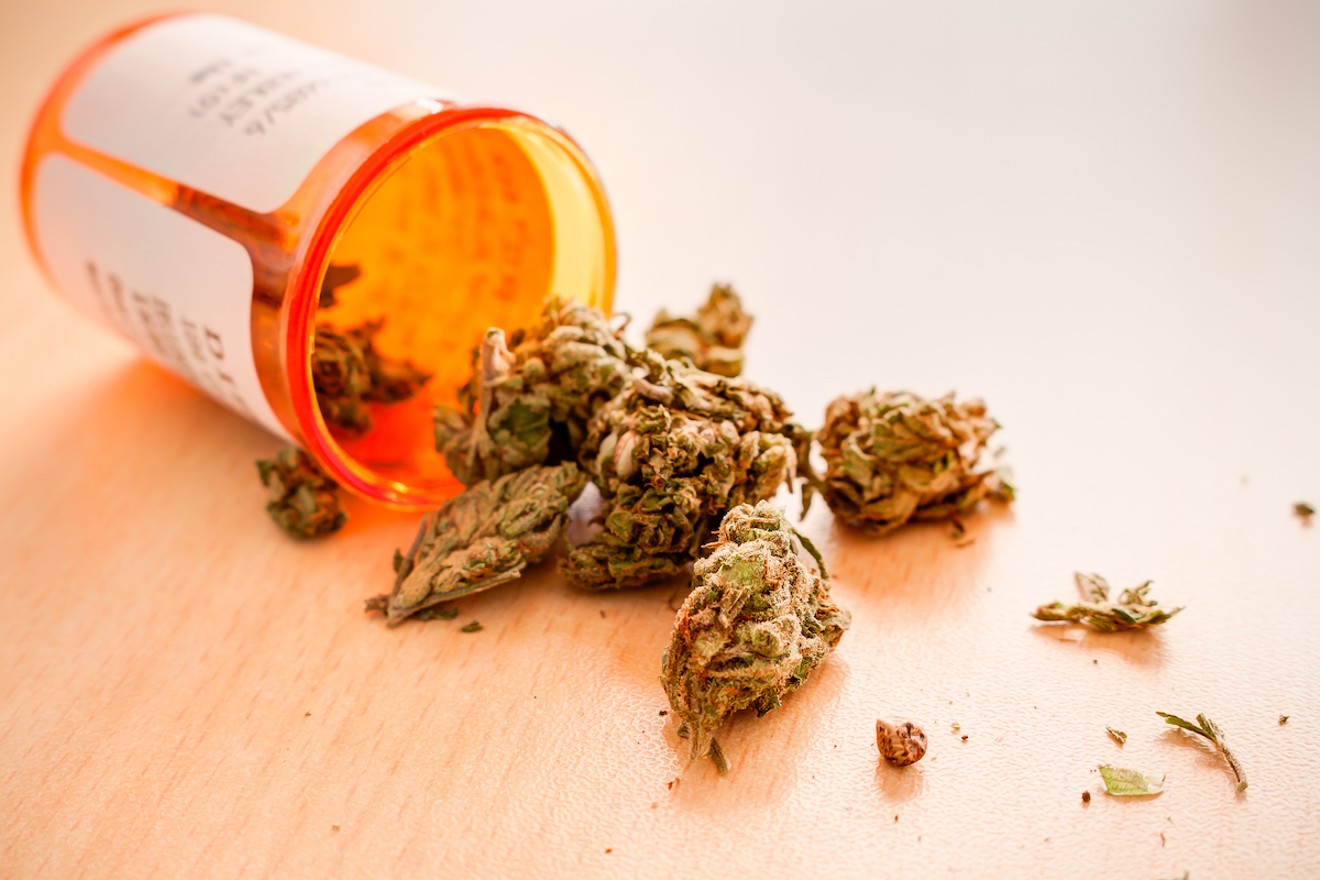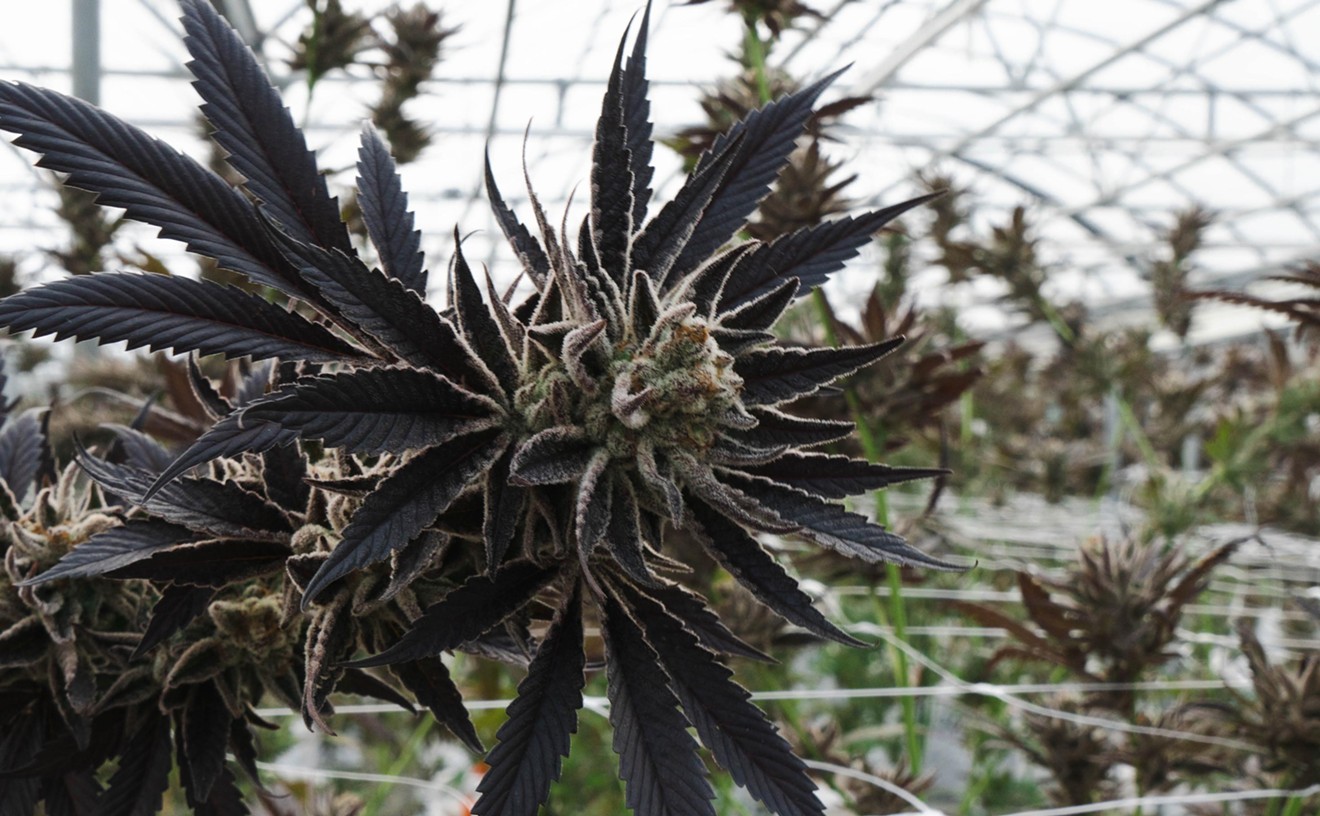Patients who live in states where medical marijuana is legal are less likely to use opioids to treat their chronic pain. That's according to a recent study by three Florida International University professors who sought to examine the effect of cannabis laws on opioid use.
The study also concluded that although medical marijuana laws corresponded with less reliance on opioids, those same laws did nothing to mitigate the misuse of opioids. In other words, people currently abusing the drugs won't likely be affected by changing medical marijuana laws in their states.
Instead, it stands to reason that fewer patients will run the risk of developing an addiction to prescription opioids if they are instead prescribed medical marijuana.
"In terms of comparative risk, cannabis has a much lower risk profile across multiple studies compared to other psychoactive substances, including opioids," says Jamie Flexon, an associate professor in FIU's Department of Criminology and Criminal Justice.
Flexon penned the report along with colleagues Lisa Stolzenberg — chair of the department — and professor Stewart J. D'Alessio. The study, published in the International Journal of Drug Policy late last year, notes that more than 116 million Americans live with chronic pain and that opioids are the most commonly prescribed pain relievers.
Past studies referenced in the FIU report already concluded cannabis is more effective at relieving pain than opioids and causes fewer and less serious side effects. Plus, patients reported they preferred cannabis over opioids for pain relief.
The FIU study mentions that the use of medical marijuana, however, comes with certain side effects, including "mental cloudiness and sedation."
"While cannabis has been argued by some to be addictive, it is not known to be associated with overdose-related death or the morbidity that is seen with opioids," the study reads.
The study also says medical marijuana laws are helpful in persuading wary patients to try cannabis once it had been made a legal alternative to opioids.
Flexon says the FIU study did not look at whether patients or doctors were responsible for the shift from opioids to cannabis in states where it was allowed. In other words, it is unknown at this point whether doctors are suggesting cannabis as a pain-relief alternative or if patients themselves are asking to switch.
Further study into the relationship between medical marijuana laws and the use of opioids is needed, the study concludes.
[
{
"name": "Air - MediumRectangle - Inline Content - Mobile Display Size",
"component": "19274298",
"insertPoint": "2",
"requiredCountToDisplay": "2"
},{
"name": "Editor Picks",
"component": "17482312",
"insertPoint": "4",
"requiredCountToDisplay": "1"
},{
"name": "Inline Links",
"component": "18711090",
"insertPoint": "8th",
"startingPoint": 8,
"requiredCountToDisplay": "7",
"maxInsertions": 25
},{
"name": "Air - MediumRectangle - Combo - Inline Content",
"component": "17482310",
"insertPoint": "8th",
"startingPoint": 8,
"requiredCountToDisplay": "7",
"maxInsertions": 25
},{
"name": "Inline Links",
"component": "18711090",
"insertPoint": "8th",
"startingPoint": 12,
"requiredCountToDisplay": "11",
"maxInsertions": 25
},{
"name": "Air - Leaderboard Tower - Combo - Inline Content",
"component": "17482313",
"insertPoint": "8th",
"startingPoint": 12,
"requiredCountToDisplay": "11",
"maxInsertions": 25
}
]











